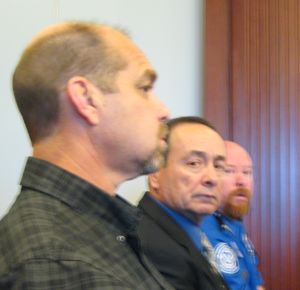DHS says they should get our PNR data, but we shouldn’t
Secretary of Homeland Security Napolitano is in Brussels today, lobbying the European Union to allow the DHS to access airline reservation Passenger Name Record (PNR) data on the same day that DHS lawyers will be facing us in court in San Francisco to argue that nobody — not even US citizens — should have the right to access their own PNR data held by DHS.
Napolitano is reportedly stopping in Brussels on her way back from Israel, where she “visited Ben Gurion International Airport to meet with airport officials to discuss ways both nations are enhancing global aviation security while streamlining legitimate travel and trade,” i.e. expanding the use of Israeli-style ethnic profiling and discrimination at US airports. According to one report on Napolitano’s trip, that’s one of the outcomes of the ongoing DHS policy laundering through ICAO:
Following the attempted terrorist attack on a Detroit bound airliner on Dec. 25, 2009, the Department of Homeland Security worked with the International Civil Aviation Organization (ICAO) and international partners including the Israeli government, as well as the private sector on a global initiative to strengthen the international aviation system against the evolving threats posed by terrorists.
Following five regional aviation summits across five continents, 190 countries adopted a historic Declaration on Aviation Security at the ICAO Triennial Assembly in October, forging a historic new foundation for aviation security.
In response to our lawsuit, US Customs and Border protection (the division of DHS that keeps PNR dossiers and other international travel records) has claimed that our initial request wasn’t signed or dated, that it didn’t include a declaration attesting to the requester’s identity and authorizing release of his records to our attorney, that they didn’t receive our administrative appeal, and that they didn’t learn of the existence of our 2007 appeal until February 2009, even though they signed a postal receipt for it in 2007 and we queried them repeatedly as to its status and called it to their attention in a formal filing with them (see page 5) in August 2008.
DHS is also claiming in response to our lawsuit that there are no logs showing what queries were made to search for or retrieve our PNR and other data, despite the repeated claims in their Privacy Impact Assessments that all such access is logged. See, for example, page 13 of the PIA for ATS (the system of records that includes PNRs) “ATS retains audit logs for all user access,” and page 16 of the PIA for TECS (one of the other systems of travel records), “Extensive audit logs are maintained showing who has accessed records and what changes, if any, were made to the records.”
We don’t yet know why DHS has lied about the facts and contradicted their prior claims. But they have more reasons to do so than simple incompetence or disorganization. And this is part of a pattern that isn’t limited to the particular Privacy Act and FOIA requests at issue in this case. We’ve had consistent difficulty in getting our requests and complaints acknowledged and docketed.
Why?

